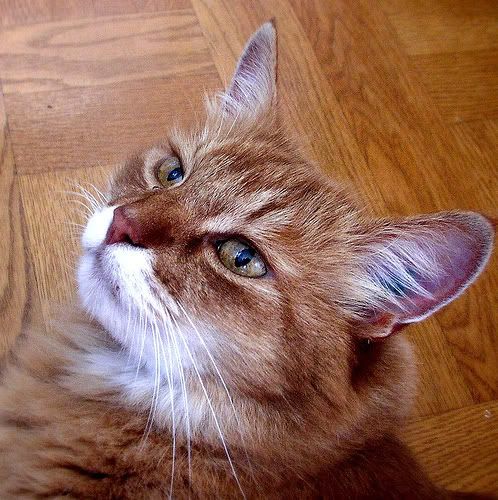I usually don't see dreams, and I see dreams about mathematics only very rarely. However, this night I had a dream about mathematics, and my cat managed to turn it into the most bizarre dream I ever had... The first part of this post is the story itself, hope you will find it funny, and the second part is about power series.
In my dream I had a conversation about sums of infinite power series. I have no idea why I would see a dream about them, it is not like I was thinking much about this. Just when the conversation turned to a specific simple problem, my cat decieded that he wants my pillow. In other words he came and sat down on it (I guess I should be thankful that he didn't sit on my head...). Naturally, this waked my up and I attempted to remove him, while still half emerged in the dream. This effectively turned the conversation I had in my dream in a conversation with my cat. Eventually I manged to convince him to get off (not before he tried to bite me for this).
I have always claimed that while dogs are "mens best friend", cats are "mathematician best friend". Now I am sure in this. Somewhere deep inside them hides a mathematical mind... :)

Photo by Per Ola Wiberg..(PO...or Powi)
Now, to the problem I mentioned. It shall be named the dreaming cat problem (for no reason whatsoever). The problem is as follows: Suppose you have an infinite sum:
This is result is not obvious, so it is time to proof all what I written. Firstly, lets proof that there is indeed such R. To do this we will use the root exam for infinite sums. This exam says that any given infinite sum converges if
If we will suppose that the right side is equal to
To proof the second part, we will first need to proof a different statement. Given two different infinite sums
So we get that
We can now use this formula to solve the problem. Lets suppose that







No comments:
Post a Comment